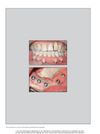 4 citations,
April 2020 in “Facial Plastic Surgery Clinics of North America”
4 citations,
April 2020 in “Facial Plastic Surgery Clinics of North America” Hair loss in women is complex to diagnose and treat, and hair restoration should be done by experts. Using minoxidil before surgery can help manage post-surgery hair shock loss. The Follicular Unit Transplantation method is recommended for women due to its speed, no need for shaving, and better graft quality. Strategies like L, T, and reverse L patterns can help restore central hair density, and regenerative methods can improve graft survival in hair transplants.
[object Object] 
Follicular unit grafting is a procedure used to treat hair loss, where small hair grafts are placed into the scalp, with future treatments likely to involve smaller incisions and cell-based therapies.
5 citations,
March 2022 in “Frontiers in Cell and Developmental Biology” Colostrum-derived exosomes can promote hair growth and may be a promising treatment for hair loss.
 January 2018 in “Springer eBooks”
January 2018 in “Springer eBooks” Athletes need effective management of skin disorders for their performance and well-being.
 October 2023 in “Cognizance journal”
October 2023 in “Cognizance journal” The document suggests using natural remedies like bloodletting and honey for various health issues but lacks scientific evidence for their effectiveness.
 242 citations,
February 2016 in “Science”
242 citations,
February 2016 in “Science” Hair loss and aging are caused by the breakdown of a key protein in hair stem cells.
 December 1989 in “The Journal of Dermatologic Surgery and Oncology”
December 1989 in “The Journal of Dermatologic Surgery and Oncology” New techniques and findings in dermatologic surgery show improved pain management, safer liposuction, better hair transplantation, and effective treatments for skin conditions.
 72 citations,
December 2012 in “Expert Opinion on Drug Delivery”
72 citations,
December 2012 in “Expert Opinion on Drug Delivery” Niosomes are promising for skin drug delivery, offering benefits like improved drug penetration and stability.
 22 citations,
March 2012 in “Molecular Medicine Reports”
22 citations,
March 2012 in “Molecular Medicine Reports” DHT affects hair follicle cells by changing microRNA levels, leading to less cell growth and more cell death.
 2 citations,
May 2021 in “Journal of pharmaceutical and biomedical analysis”
2 citations,
May 2021 in “Journal of pharmaceutical and biomedical analysis” A new method was developed to accurately detect and measure 47 different drug ingredients in various products.
82 citations,
May 2010 in “PLoS neglected tropical diseases” Secondary syphilis in Cali, Colombia, shows high Treponema pallidum presence and challenges in early diagnosis, needing better public health strategies.
 3 citations,
January 2014 in “Plastic surgery (Oakville. Print)”
3 citations,
January 2014 in “Plastic surgery (Oakville. Print)” Hair transplant surgery is a safe and effective way to treat hair loss from scarring in Chinese patients.
 10 citations,
December 2021 in “Frontiers in cell and developmental biology”
10 citations,
December 2021 in “Frontiers in cell and developmental biology” Glypican-1 is important for blood vessel growth in hair follicles and could help treat hair loss.
 1 citations,
December 2022 in “Middle East Journal of Science”
1 citations,
December 2022 in “Middle East Journal of Science” Permanent hair dyes use chemicals that react with hydrogen peroxide to create color.
 July 2021 in “Medical journal, Armed Forces India”
July 2021 in “Medical journal, Armed Forces India” Using platelet-rich plasma in hair restoration surgery significantly improves hair density after 6 months and is safe to use.
 76 citations,
May 2011 in “Cell death and differentiation”
76 citations,
May 2011 in “Cell death and differentiation” A20 protein is crucial for normal skin and hair development.
51 citations,
October 2019 in “Cells” Baricitinib reduces inflammation and improves cell health in premature aging cells.
 183 citations,
January 2018 in “Cosmetics”
183 citations,
January 2018 in “Cosmetics” Essential oils in cosmetics can offer benefits but may cause allergies and should be used carefully.
 40 citations,
December 2019 in “Neurobiology of Stress”
40 citations,
December 2019 in “Neurobiology of Stress” Neuroactive steroids show promise for treating mental and neurological disorders by targeting GABA_A receptors.
 33 citations,
December 2015 in “Neuroendocrinology”
33 citations,
December 2015 in “Neuroendocrinology” Finasteride treatment changes brain steroid levels and receptors, affecting brain function even after stopping treatment.
 58 citations,
February 2016 in “Scientific reports”
58 citations,
February 2016 in “Scientific reports” Blocking BACE1 and BACE2 enzymes causes hair color loss in mice.
 20 citations,
January 2006 in “Clinics in Plastic Surgery”
20 citations,
January 2006 in “Clinics in Plastic Surgery” Tumescent liposuction is safe and effective for different cosmetic surgeries if done within recommended limits.
[object Object]  November 2020 in “bioRxiv (Cold Spring Harbor Laboratory)”
November 2020 in “bioRxiv (Cold Spring Harbor Laboratory)” Ezh2 controls skin development by balancing signals for dermal and epidermal growth.
 January 2002 in “Journal of Toxicology-cutaneous and Ocular Toxicology”
January 2002 in “Journal of Toxicology-cutaneous and Ocular Toxicology” Botanical extracts are increasingly important in cosmetics and drugs for their effectiveness and safety, backed by traditional use and scientific evidence.
 June 2017 in “International Journal of Periodontics & Restorative Dentistry”
June 2017 in “International Journal of Periodontics & Restorative Dentistry” Using skin grafts from behind the ear for oral surgery in two patients with jaw injuries led to successful healing and good results.
 9 citations,
September 2015 in “Medical Clinics of North America”
9 citations,
September 2015 in “Medical Clinics of North America” The document explains how to do skin procedures, care after surgery, and when to use certain treatments.
 7 citations,
August 2018 in “Journal of Cosmetic and Laser Therapy”
7 citations,
August 2018 in “Journal of Cosmetic and Laser Therapy” Microneedling combined with skinbooster effectively treats striae rubrae, with confocal microscopy confirming collagen changes.
 62 citations,
October 2017 in “JAMA facial plastic surgery”
62 citations,
October 2017 in “JAMA facial plastic surgery” Condensed nanofat with fat grafts effectively improves atrophic facial scars.
 177 citations,
July 2004 in “The Journal of Sexual Medicine”
177 citations,
July 2004 in “The Journal of Sexual Medicine” Experts recommend thorough medical, sexual, and psychosocial assessments for women's sexual dysfunctions, and suggest individualized treatment plans with regular check-ups. They also mention potential use of estrogen and androgen therapy, but with caution due to safety concerns.
 1 citations,
January 2017 in “Social Science Research Network”
1 citations,
January 2017 in “Social Science Research Network” The document suggests creating a secure database for indigenous knowledge and recommends that the TKDL actively fight patents that slightly alter traditional knowledge.


























